Searching for the best Botsonic alternatives to enhance your customer support or improve customer engagement? Many businesses, from SaaS companies to small e-commerce platforms, are seeking advanced AI chatbot solutions that go beyond Botsonic’s offerings. While Botsonic provides an excellent custom AI chatbot builder, its features may not meet the specific needs of every business. Some may look for better pricing plans, advanced customization options, or improved integration with existing tools like CRMs or social media platforms.
This blog post highlights 9 powerful alternatives to Botsonic that cater to businesses aiming to deliver exceptional customer satisfaction, drive user engagement, and address user queries effectively. Whether you’re focused on building chatbots for seamless human-like conversations or leveraging machine learning algorithms to boost customer experience, these tools offer features that align with your business requirements.
Criteria for Selecting a Chatbot Platform
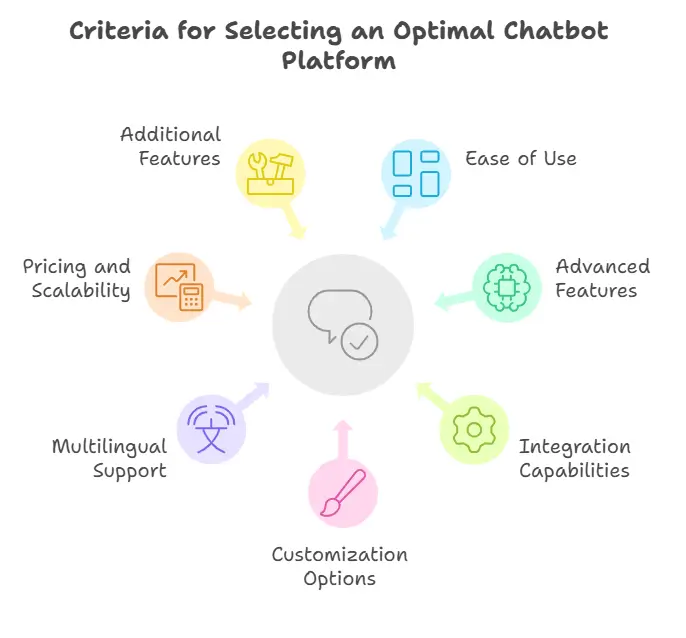
When choosing a chatbot platform, it’s essential to focus on the features that align with your business requirements and support your goals. Here are the key factors to consider when evaluating Botsonic alternatives or any other AI-powered tools:
Ease of Use and User-Friendly Interface
A platform should have a user-friendly interface that allows teams with minimal technical expertise to build and deploy custom AI chatbots. Intuitive dashboards and drag-and-drop builders can significantly reduce the learning curve.
Advanced Features
Look for platforms with advanced natural language processing and machine learning algorithms to ensure human-like conversations. These features enable the chatbot to understand human language, provide relevant responses, and improve customer interactions.
Integration Capabilities
Seamless integration with existing tools such as CRMs, email marketing platforms, and social media platforms like Facebook Messenger is critical. This ensures that the chatbot works across multiple channels and supports a cohesive customer experience.
Customization Options
The chatbot should offer extensive customization options to match your brand’s tone and meet your specific needs. Businesses aiming to build chatbots that reflect their unique identity will benefit from these tailored solutions.
Multilingual Support
If your audience spans different regions, multilingual support is a must. This ensures your chatbot can engage effectively with a diverse customer base, improving overall customer satisfaction.
Pricing and Scalability
Choose a platform with flexible pricing plans that fit your business plan. Whether you’re a small business or an enterprise, scalability matters as your customer base and requirements grow.
Additional Features and Support
Features like knowledge bases, personalized responses, and robust customer support are vital for enhancing user engagement and addressing user queries.
By evaluating chatbot platforms against these criteria, you can identify the best fit for your business while leveraging AI tools to improve customer behavior insights and streamline processes.
Top 9 Botsonic Alternatives
When it comes to AI chatbot builder, there are plenty of alternatives to Botsonic that cater to businesses aiming for exceptional customer engagement and efficient handling of user queries. Let’s explore the top contenders, starting with Desku, a standout choice for many businesses.
1. Desku
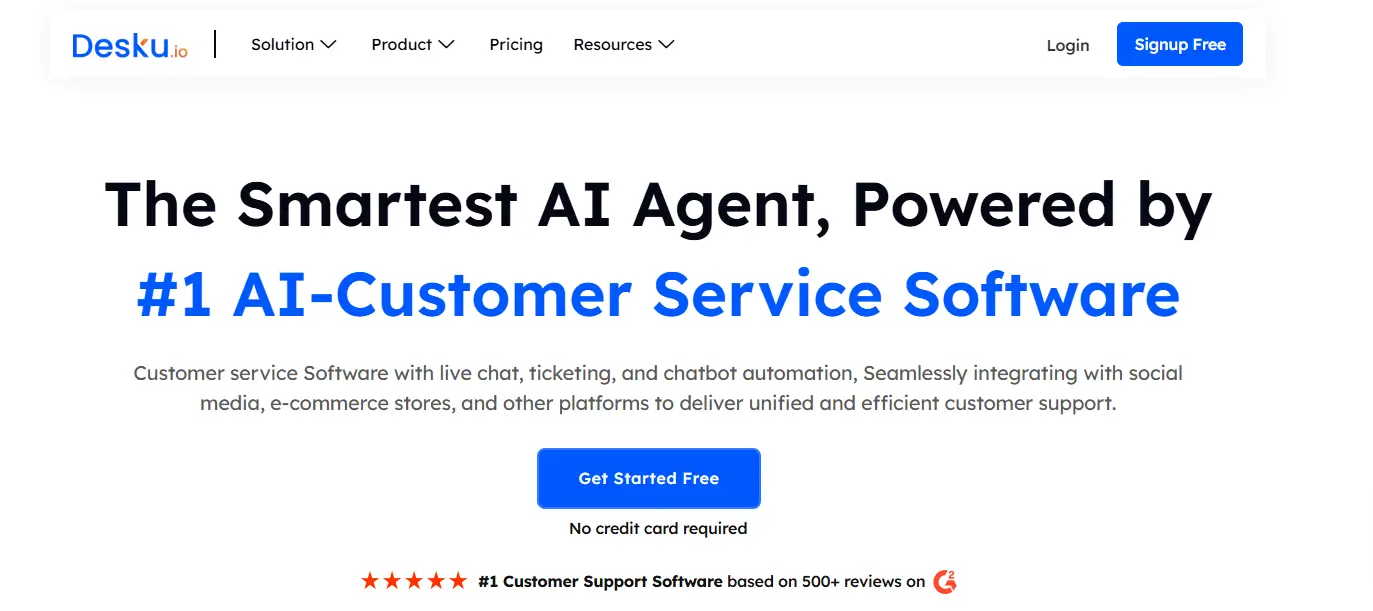
Desku is a robust AI-powered platform designed to streamline customer interactions and provide a user-friendly interface for building custom AI chatbots. Known for its versatility, Desku offers a comprehensive solution for businesses looking to improve customer satisfaction while saving time and resources.
Key Features:
- Seamless Integration: Works effortlessly with multiple channels, including social media platforms, email, and websites, ensuring a cohesive customer experience.
- Customization Options: Offers extensive tools to match the chatbot to your brand’s tone and style.
- Natural Language Processing: Enables human-like conversations and provides relevant responses to user queries, leveraging machine learning algorithms.
- Multilingual Support: Ideal for businesses with a global presence, allowing chatbots to interact in various languages.
Pros:
- Easy-to-use interface for non-technical teams.
- Affordable pricing plans that cater to small businesses and large enterprises alike.
- Robust analytics for tracking customer behavior and improving user intent recognition.
Cons:
- Limited advanced features in basic plans.
- Requires some customization for highly complex workflows.
Pricing: Starts with flexible plans suitable for small businesses and scales up for larger organizations.
Best For: Customer service teams, e-commerce businesses, and SMEs looking for a user-friendly platform to enhance customer support.
2. ChatGPT by OpenAI
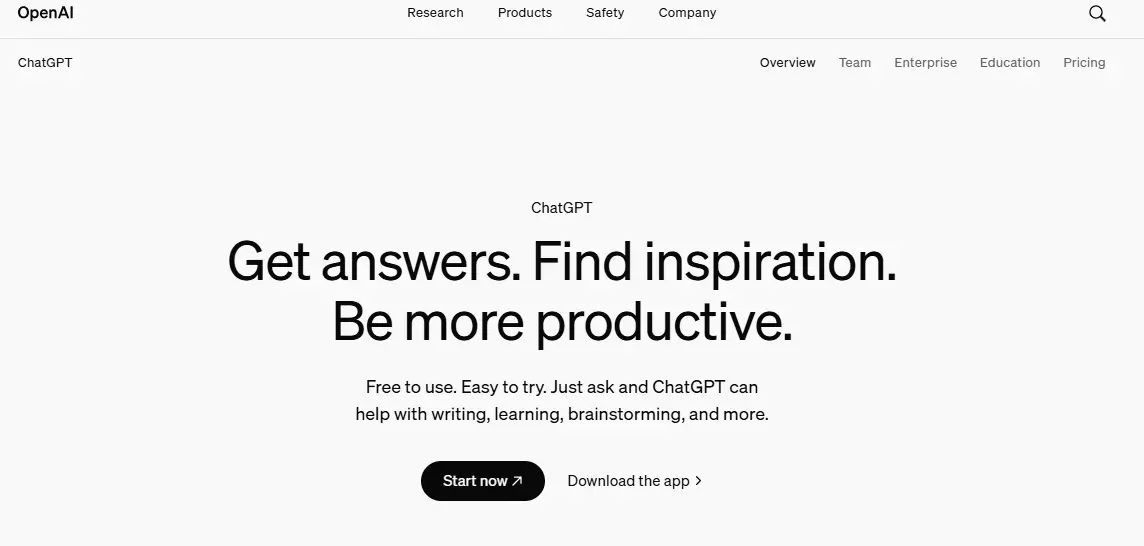
OpenAI’s ChatGPT has quickly become a favorite for businesses looking for AI assistants that handle human language with precision. It’s an excellent option for businesses aiming to create chatbots that leverage machine learning for answering FAQs, supporting content creation, and handling user queries.
Key Features:
- Advanced natural language processing capabilities.
- Pre-trained on vast datasets to deliver relevant responses.
- Supports integrations with third-party existing tools and platforms.
Pros:
- Customizable for a wide range of use cases.
- Multilingual support for global audiences.
- Suitable for both basic and complex chatbot requirements.
Cons:
- Higher costs for advanced usage tiers.
- May require additional tools for seamless integration.
Best For: Businesses seeking a versatile AI chatbot for content creation, lead generation, and customer service.
3. Tidio
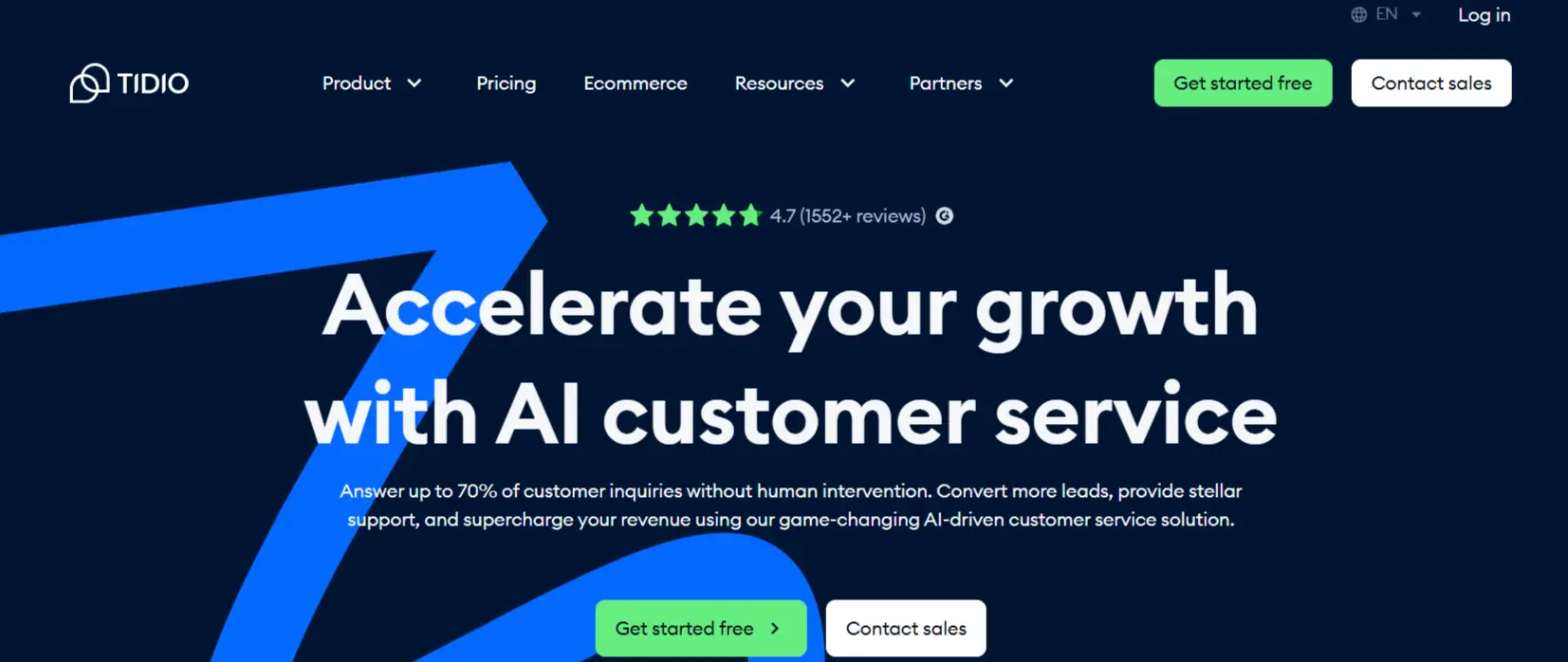
Tidio is a popular choice for businesses looking for a user-friendly platform to build chatbots and enhance customer satisfaction. Its intuitive interface and advanced features make it a great alternative to Botsonic.
Key Features:
- AI-powered chatbots for real-time responses to user queries.
- Seamless integration with platforms like Facebook Messenger, Shopify, and WordPress.
- Multilingual support for interacting with customers globally.
- Pre-designed templates for faster setup.
Pros:
- Easy-to-use for small businesses with no technical expertise.
- Built-in email marketing tools for cross-channel campaigns.
- Offers analytics to understand customer behavior.
Cons:
- Limited customization in lower-tier plans.
- Requires additional modules for advanced use cases.
Pricing: Free plan available; paid plans start at an affordable rate, suitable for startups and SMEs.
Best For: E-commerce businesses and SMBs looking for cost-effective AI tools to boost customer interactions.
4. Drift
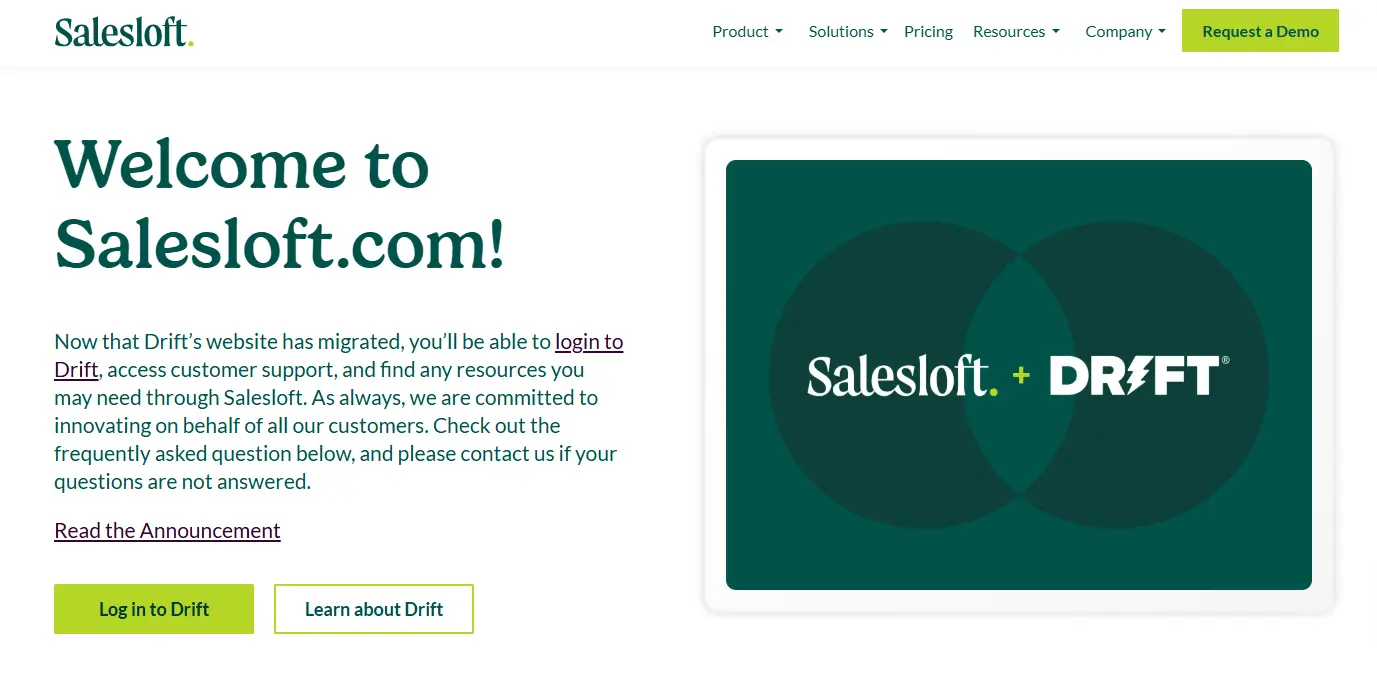
Drift is an AI-powered platform specializing in human-like conversations to drive user engagement and customer satisfaction. It’s tailored for businesses that prioritize lead generation and personalized customer interactions.
Key Features:
- AI assistants with robust machine learning algorithms.
- Real-time chat integrated with email marketing and CRMs.
- Advanced lead qualification features for generating leads.
- Multilingual support for global businesses.
Pros:
- Highly customizable for targeted campaigns.
- Offers insights into user privacy and customer behavior.
- Designed to increase customer engagement and retention.
Cons:
- Higher cost compared to other alternatives.
- Requires training to utilize its advanced capabilities fully.
Pricing: Pricing is tailored to enterprise solutions but offers scalable options for SMEs.
Best For: SaaS companies and customer service teams focused on improving the overall customer experience.
5. Landbot
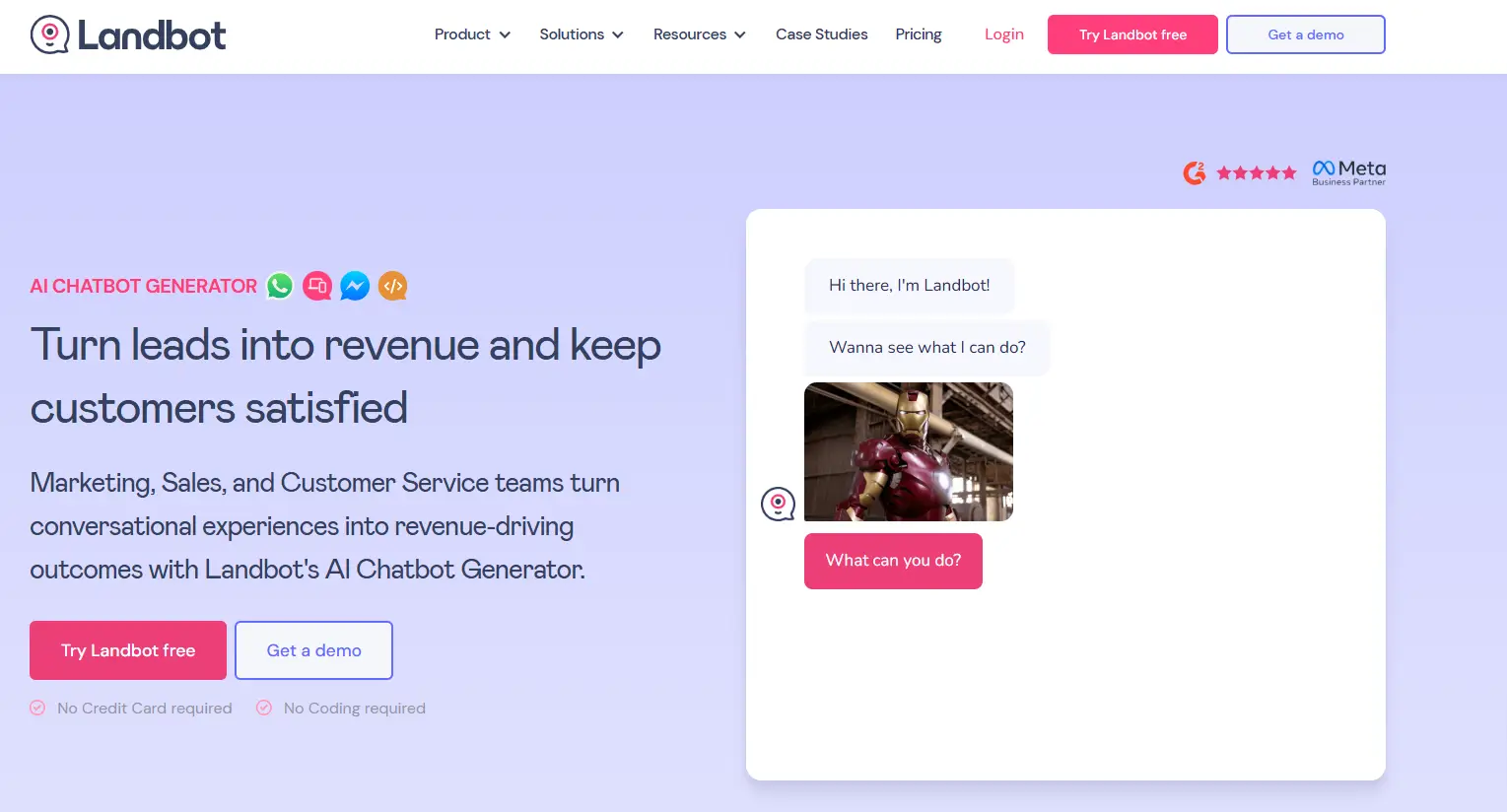
Landbot is an innovative chatbot builder known for its no-code approach, allowing teams to create custom AI chatbots with minimal effort. It’s perfect for businesses that need advanced features without the complexity.
Key Features:
- Drag-and-drop interface for building chat workflows.
- Seamless integration with apps like Zapier, Slack, and CRMs.
- Supports both AI and rule-based chatbots.
- Analytics for monitoring user intent and performance.
Pros:
- Extremely easy to use for non-technical users.
- Offers templates for quick setup.
- Flexible pricing plans to accommodate businesses of all sizes.
Cons:
- Limited machine learning capabilities compared to other platforms.
- Advanced features require higher-tier plans.
Pricing: Free trial available; plans start at budget-friendly rates.
Best For: SMEs and small businesses looking for a simple yet powerful chatbot solution.
6. ManyChat

ManyChat focuses on automation and building chatbots for social media platforms like Facebook Messenger. It’s ideal for businesses looking to automate customer interactions and grow their audience.
Key Features:
- Pre-built workflows for answering FAQs and generating leads.
- Integration with various platforms including WhatsApp, SMS, and Shopify.
- User-friendly dashboard with drag-and-drop customization.
Pros:
- Optimized for social media and multiple channels.
- Affordable for small businesses.
- Provides tools for audience segmentation.
Cons:
- Limited support for web-based AI chatbots.
- Not suitable for complex business requirements.
Pricing: Free plan available; premium plans are budget-friendly.
Best For: E-commerce businesses and social media-driven customer support teams.
7. Zoho Desk
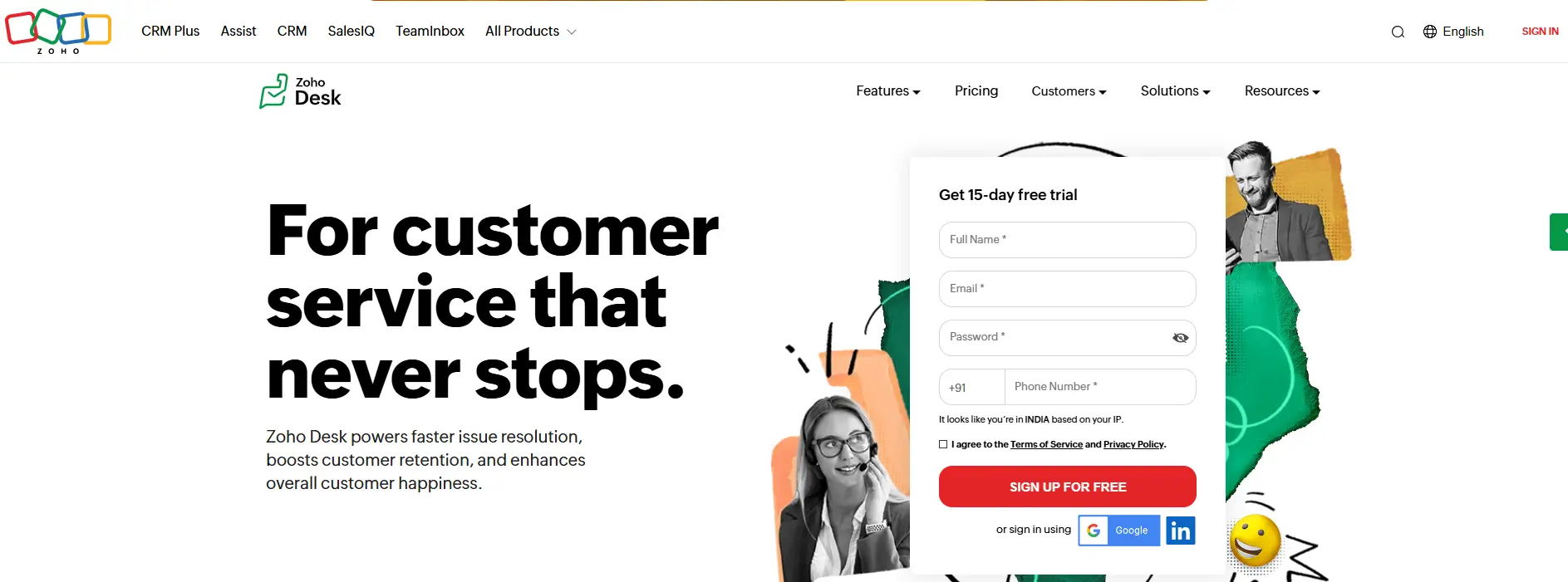
Zoho Desk’s chatbot functionality is part of its comprehensive customer support suite, making it a strong contender for teams looking to improve customer service through AI.
Key Features:
- AI assistant for ticket automation and answering FAQs.
- Multilingual support for global customer bases.
- Integration with existing tools like CRMs and help desks.
- Custom workflows for advanced business requirements.
Pros:
- Excellent for improving customer service.
- Supports omnichannel customer interactions.
- Backed by Zoho’s ecosystem of tools.
Cons:
- Limited to users of the Zoho ecosystem.
- Advanced features may require additional purchases.
Pricing: Affordable plans, with discounts for startups and SMEs.
Best For: Customer support teams and SaaS companies using Zoho products.
8. Intercom
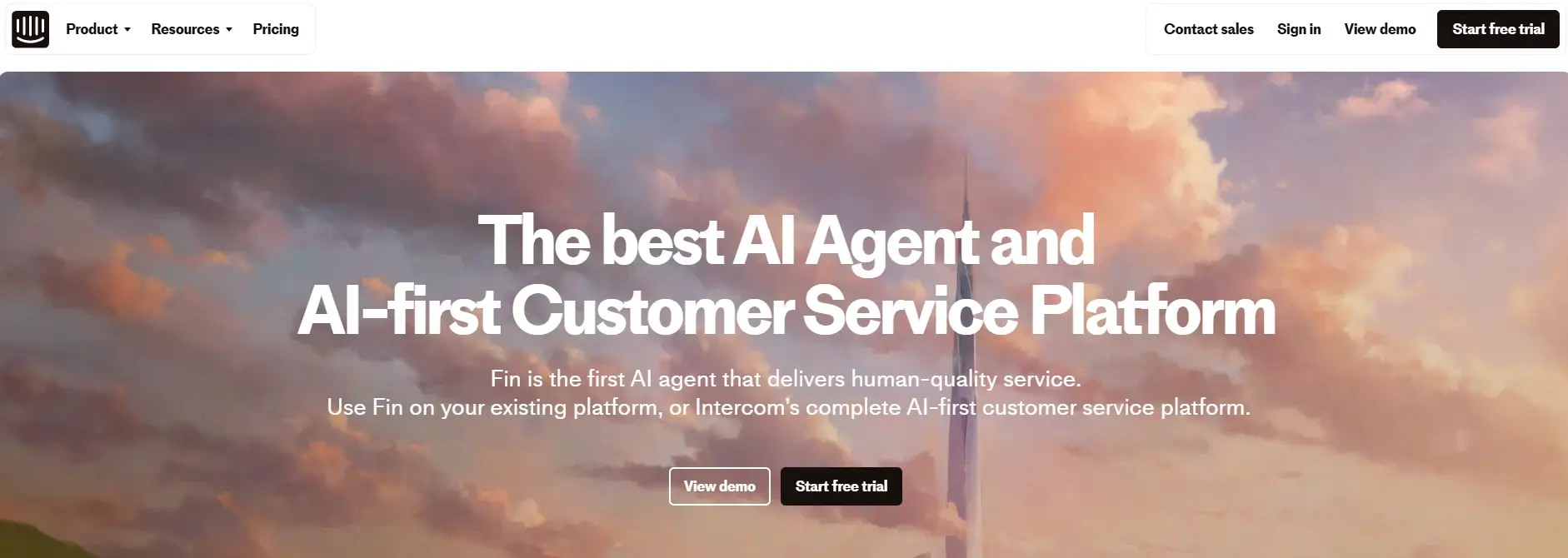
Intercom is a well-known AI-powered tool for businesses focused on customer engagement and improving customer service through proactive messaging and live chat.
Key Features:
- AI chatbots for human-like conversations.
- Customizable messaging for personalized responses.
- Integration with CRM and email marketing platforms.
- Insights into customer behavior and user queries.
Pros:
- Great for scaling customer communication.
- Offers robust analytics for tracking user intent.
- Supports team collaboration.
Cons:
- Higher pricing for advanced features.
- Learning curve for new users.
Pricing: Custom pricing based on business size.
Best For: Customer service teams in medium-to-large businesses.
Read More : Intercom Pricing Explained : Plans, Costs, and Value for Your Business
9. Kommunicate
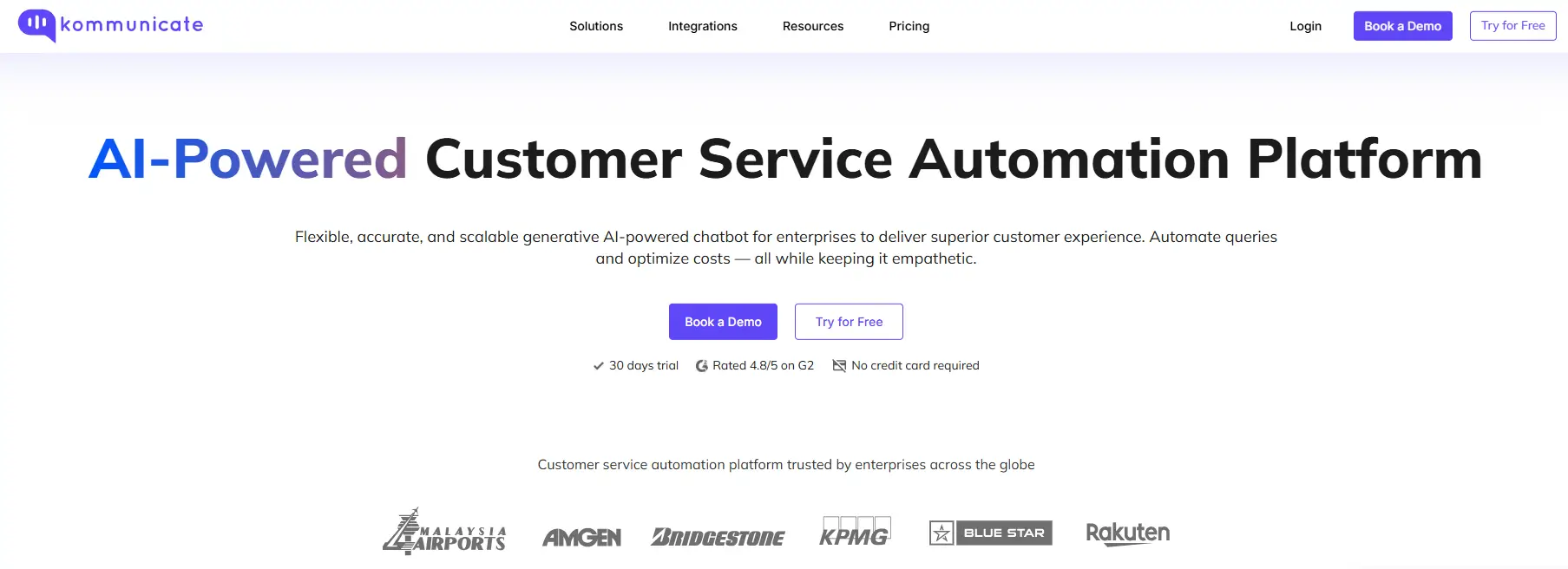
Kommunicate combines AI-powered chatbots with human interaction for a hybrid approach to customer service. It’s ideal for businesses seeking comprehensive solutions for building chatbots.
Key Features:
- AI + human hybrid chat for flexible workflows.
- Seamless integration with existing CRMs and help desk software.
- Advanced natural language processing for accurate relevant responses.
- Multilingual support and customization options.
Pros:
- Highly flexible for various business plans.
- Affordable for small businesses.
- Excellent support for customer satisfaction.
Cons:
- Limited features in free versions.
- Requires a learning curve for complex setups.
Pricing: Free plan available; premium plans start at competitive rates.
Best For: Customer support managers and SMBs looking to enhance their overall customer experience.
Comparison Table: Top Botsonic Alternatives
Here’s a side-by-side comparison of the top Botsonic alternatives based on key features, pricing plans, and suitability for different business needs. This table will help you quickly identify which platform fits your requirements.
| Platform | Key Features | Best For | Pricing |
|---|---|---|---|
| Desku | Seamless integration, natural language processing, multilingual support | SMEs, E-commerce businesses | Starts with affordable plans |
| ChatGPT | Advanced NLP, customizable AI, multilingual, pre-trained for accuracy | Versatile use cases | Usage-based pricing |
| Tidio | Email marketing, pre-designed templates, multilingual support | E-commerce, SMBs | Free plan available |
| Drift | AI for lead generation, personalized customer interactions | SaaS companies, lead-driven businesses | Custom pricing |
| Landbot | Drag-and-drop chatbot builder, rule-based chat options | Simple chatbots for SMBs | Budget-friendly plans |
| ManyChat | Social media automation, multi-channel workflows | Social media-focused businesses | Free and premium plans |
| Zoho Desk | Ticketing, FAQ automation, multilingual integration | Zoho ecosystem users | Affordable for startups |
| Intercom | Proactive messaging, detailed user analytics, AI chatbot | Medium-to-large businesses | Custom pricing |
| Kommunicate | AI + human hybrid chat, natural language processing, multilingual support | SMBs, support teams | Free and premium plans |
How to Choose the Right Botsonic Alternative for Your Business
With so many options, selecting the right platform can seem overwhelming. Here are some practical tips to guide your decision:
- Evaluate Your Business Needs
Identify whether your focus is on customer satisfaction, generating leads, or improving customer service. Match these goals with the platform’s strengths. - Check Integration Capabilities
Ensure the platform integrates smoothly with your existing tools, CRMs, and social media platforms. - Consider Scalability
If you anticipate growth, choose a platform with flexible pricing plans and features that can scale with your business. - Focus on User Experience
A user-friendly platform with advanced natural language processing will improve user engagement and deliver human-like conversations. - Assess Support and Resources
Opt for a platform with comprehensive resources, such as a knowledge base, and responsive customer support.
By keeping these factors in mind, you can make an informed decision and select a platform that aligns with your business requirements and goals.
FAQ Section
1. What is Botsonic, and why look for alternatives?
Botsonic is a custom AI chatbot builder that leverages machine learning algorithms to create human-like conversations. While it’s a robust tool, businesses may seek alternatives for better pricing plans, additional features, or improved integration capabilities.
2. What are the key features to look for in a Botsonic alternative?
The most critical features include natural language processing, customization options, multilingual support, seamless integration with existing systems, and advanced chatbot functionality for handling complex user queries.
3. Which is the most user-friendly chatbot platform?
Desku, Landbot, and Tidio are known for their user-friendly interfaces, making them ideal for businesses without technical expertise.
4. Are there free Botsonic alternatives?
Yes, platforms like Tidio, Kommunicate, and ManyChat offer free plans with essential features. However, advanced capabilities may require upgrading to paid plans.
5. Which platforms are best for small businesses?
Desku, ManyChat, and Landbot are excellent choices for small businesses, offering affordable solutions with scalable features.
6. Can these alternatives handle multilingual support?
Most of the listed alternatives, including Desku, ChatGPT, and Drift, support multiple languages, ensuring effective communication with a diverse audience.
Conclusion
Finding the right AI chatbot builder is critical for enhancing customer engagement, streamlining user queries, and improving customer satisfaction. While Botsonic is a powerful tool, its alternatives like Desku, Tidio, and Drift provide features that cater to diverse business needs, from small businesses to SaaS companies. These platforms offer advanced natural language processing, seamless integration capabilities, and scalable pricing plans, making them a perfect fit for businesses aiming to deliver exceptional customer experiences.
Choosing the right platform ultimately depends on your business requirements and goals. Whether you prioritize human-like conversations, multilingual support, or customization options, this list of alternatives ensures you’ll find the perfect match.
- About the Author
- Latest Posts
Gaurav Nagani was the Founder of Desku, an AI-powered customer service software platform.
- Email Management: Best Strategies, Tools & Tips for SaaS and Ecommerce
- Shared Inbox Guide: Definition, Benefits, Tools & Best Practices 2025
- LivePerson Pricing Exposed: What They Don’t Show You on Their Website
- Automate Customer Support with AI A Practical Guide
- Desku vs UsePylon: Which One Scales Better for Startups?


